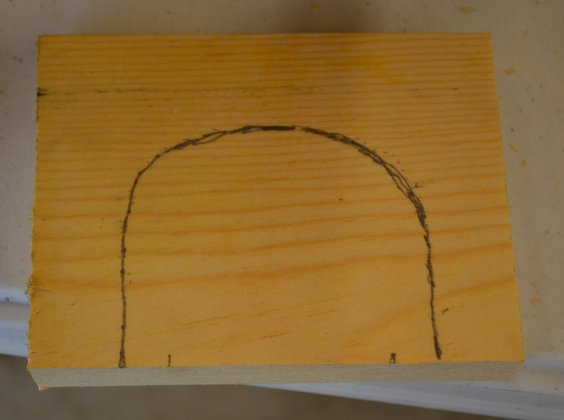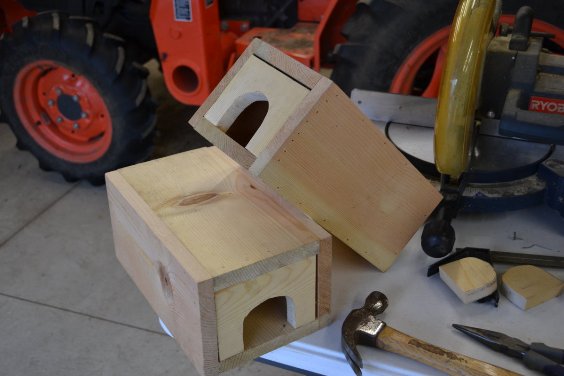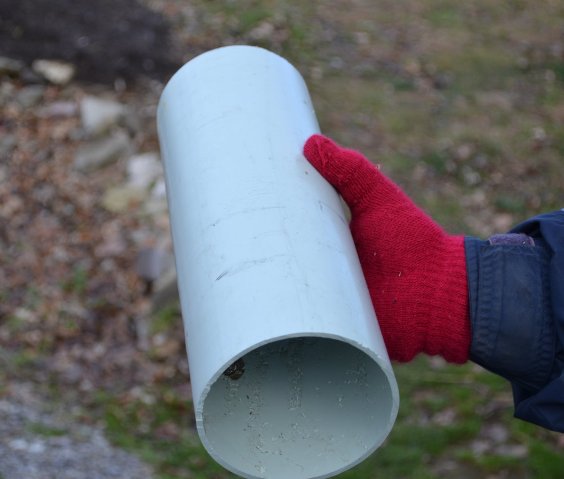Many people don’t realize this but field mice and other rodents will actually eat your plants and kill them. Sometimes the damage they do is so subtle and inconspicuous that the damage itself goes unseen, yet the result of that damage can be devastating.
There are a lot of ways to control rodents in the garden and the nursery, but most nurseries opt to use poisonous mouse and or rat bait just because it works. Yeah, I know, it’s poisonous and it’s dangerous to pets and children. So you have to use it responsibly.
Keep in mind, in an outdoor setting you need bait that is weather resistant and will not absorb moisture as soon as you set it out. I usually just buy whatever brand that is available and is packaged the way that I need it. I really don’t know if one brand is better than another or not. Many times you have to get these weather resistant rodent baits at a farm supply store.
What happens when you don’t put out mouse bait? Years ago I had these cute little chipmunks in my yard. I wouldn’t put out mouse bait because I didn’t want to kill the chipmunks. Come winter I had hundreds of Japanese maples that I grafted so I built a structure over them and covered it with white plastic and didn’t use mouse bait. The mice got in there and made it their winter home.
They got up in the one gallon containers and started chewing the bark off the Japanese maples. They would literally stand on their hind legs to chew up as high as they could reach. I know that because I could see exactly where they stopped chewing on the stem of the trees. The long, sad story, short is the mice killed almost every single Japanese maple I had. I spent weeks painstakingly grafting them, then I grew them out for a full growing season, then I let the mice eat them. They ate my rooted cuttings too!
During the same winter they got under the plastic I used to cover my rooted cuttings and ate those too. All the way down to the sand in the flats. The cuttings were completely gone. About 40% of them came back from the roots and were actually multi branched which is a lesson in pruning, but a bit drastic for all practical purposes. The only rooted cuttings they didn’t eat, I mean not at all, were the Red Twig Dogwoods. They must not taste good because they ate everything around them and never touched the dogwoods. I learned my lesson about not using mouse bait in the winter.
Fortunately there some simple bait stations that work and that you can easily make on your own.

Making a Wood Mouse Bait Station
I’m not sure but I think I was trained to think that mice will only go through an arched doorway into their house from the Tom & Jerry cartoons I watched as a kid. I went a little crazy with these wooden bait stations. But I wanted them a little more secure because I was putting them where my dog could get to them if she wanted to.

The dimension of these contraptions is about 6.25″ by 12″ in case you are wondering. They do not open up. I can just pick them up and tip to one end to get the old bait out and re-bait as needed.

Making a PVC Pipe Mouse Bait Station
It doesn’t get simpler than using a 4″ PVC, solid drain pipe. All I do is cut the pipe in 12″ sections and each section serves as a bait station. The rodents can enter from either end, and if you place these carefully so they are not where water is likely to stand, the bait inside will stay dry for a reasonable period of time.
I’m not exactly a mousealagist, I know, but we’ll just pretend it’s a word. As I understand it mice and other rodents don’t like traveling in the middle of the dance floor. They navigate more with their whiskers than they do their eyes so they like to travel along the edges of walls or other stationary objects. That’s why you should place your bait stations in their path, along walls etc. where they are most likely to travel.
Keep your bait and bait stations out of the reach of pets and children. Be careful to not allow your pets to discover rodents that have been poisoned. Dead rodents can make your pets sick or worse. Make sure the read the label on the bait package and use extreme caution when using it.
Mike McGroarty is the owner of McGroarty Enterprises and the author of several books. You can visit his website at Freeplants.com and read his blog at Mikesbackyardnursery.com.
Related Articles & Free Email Newsletter
Neem Oil is an Amazing Product
Protect Your Landscape from Winter Wildlife Damage




Comment here